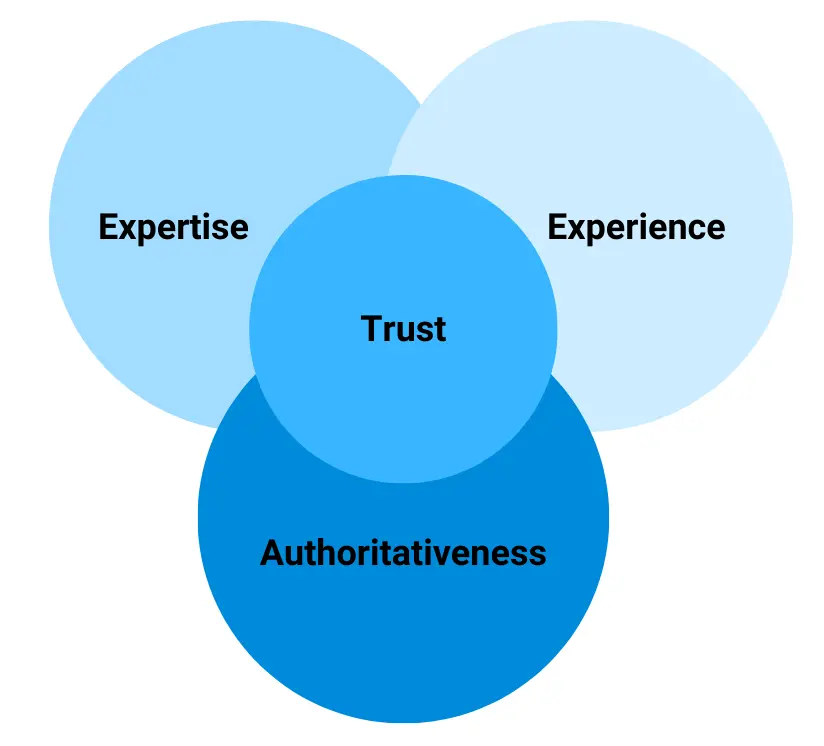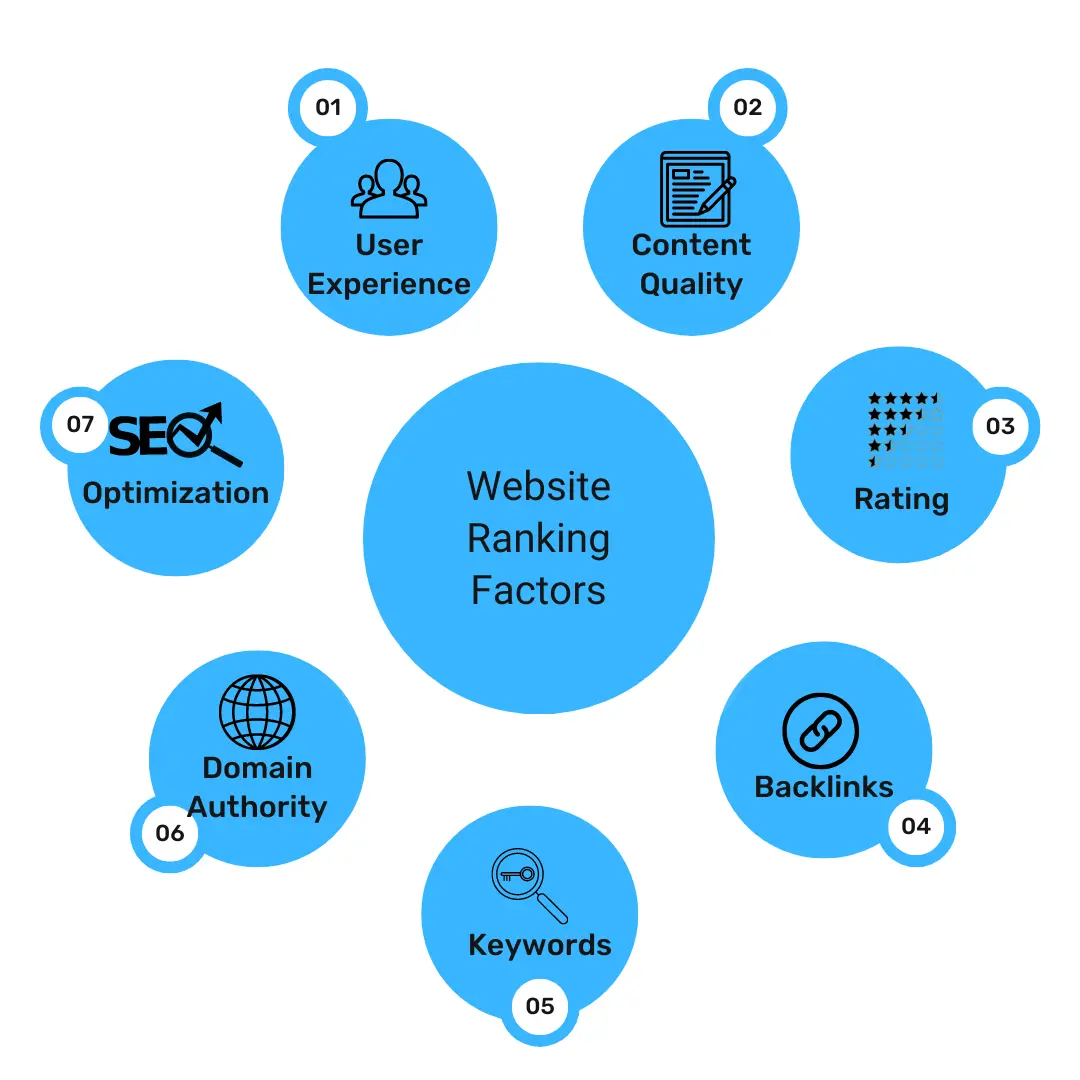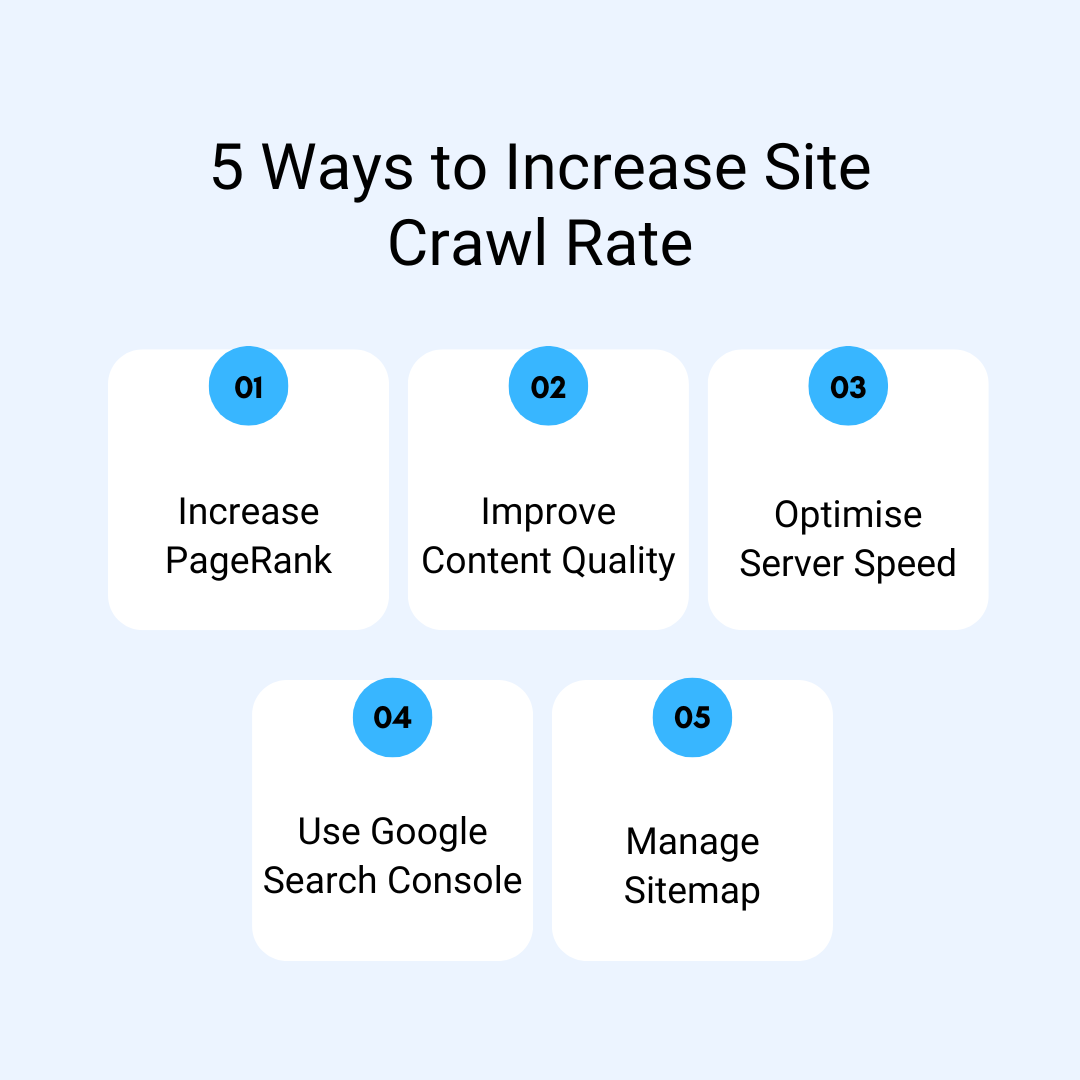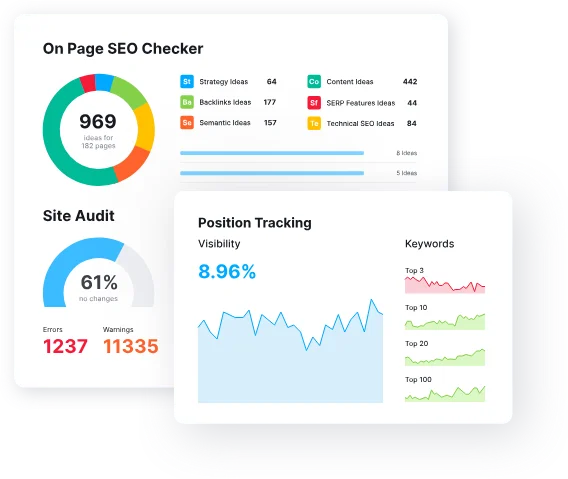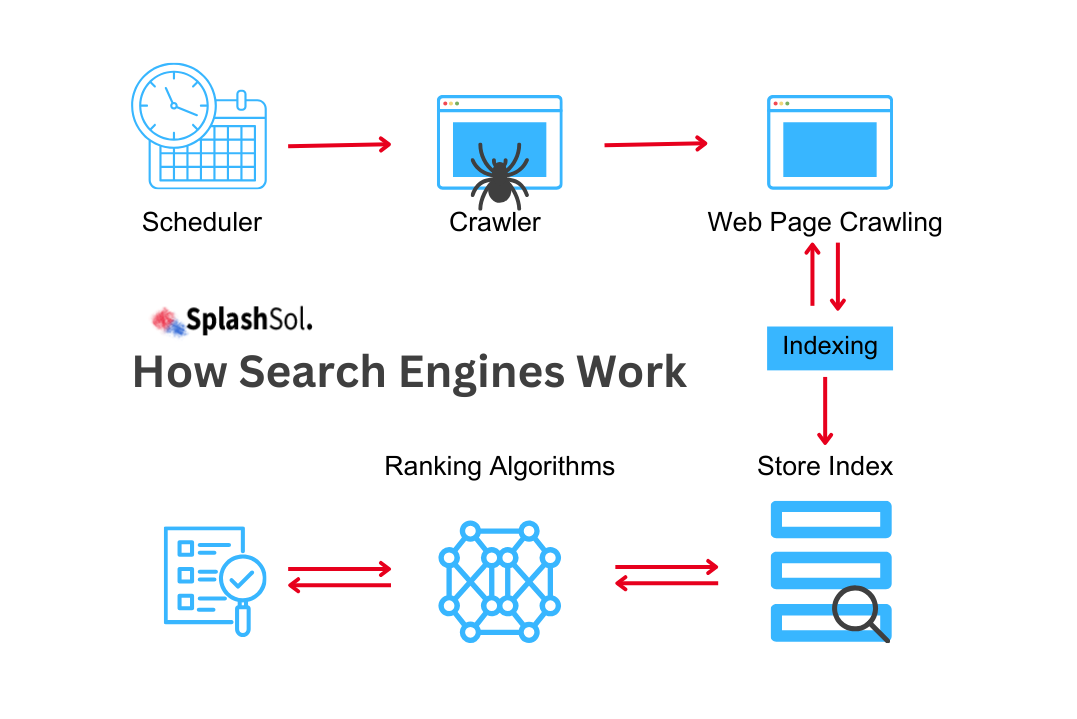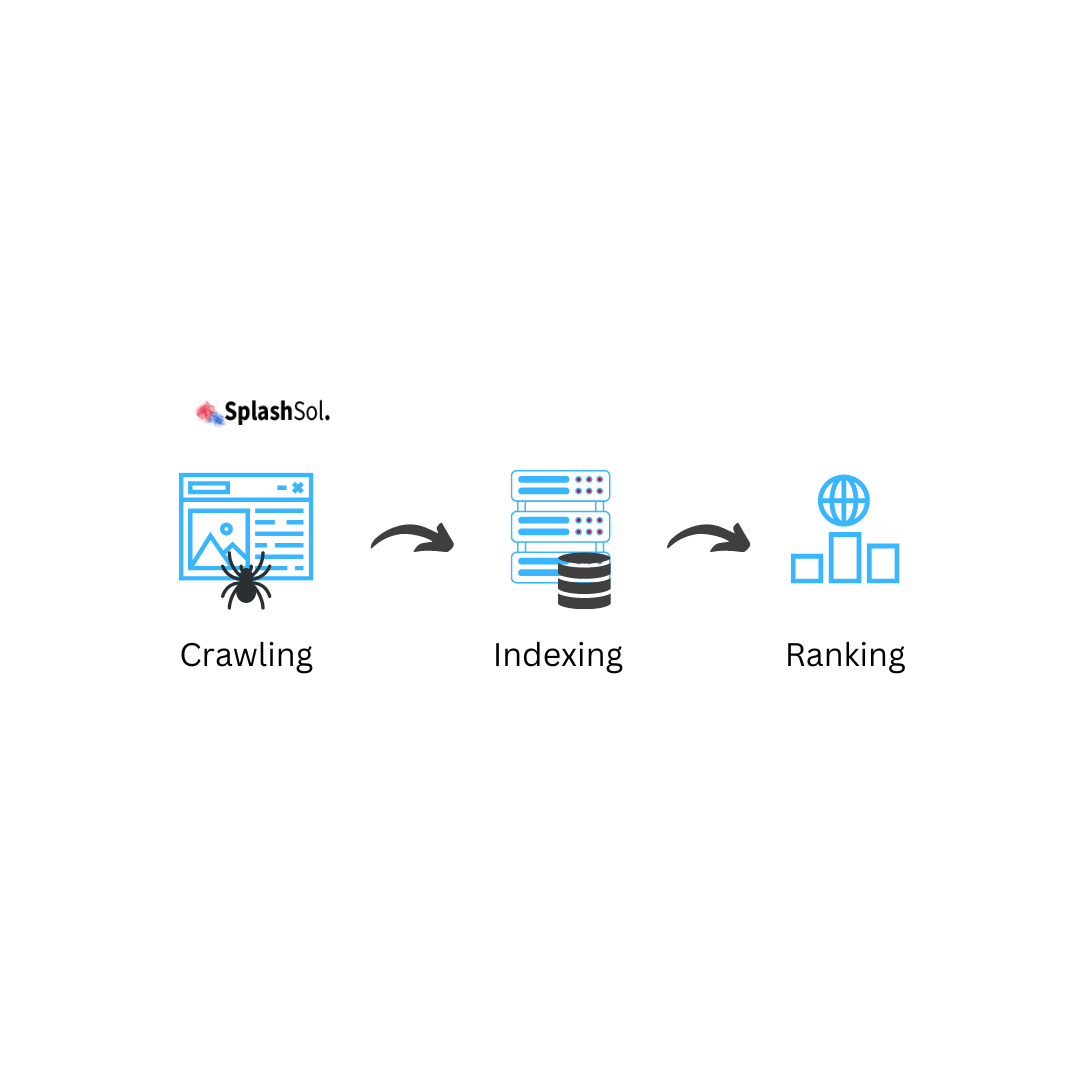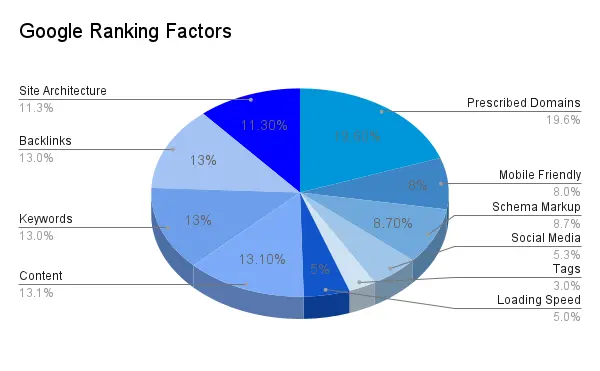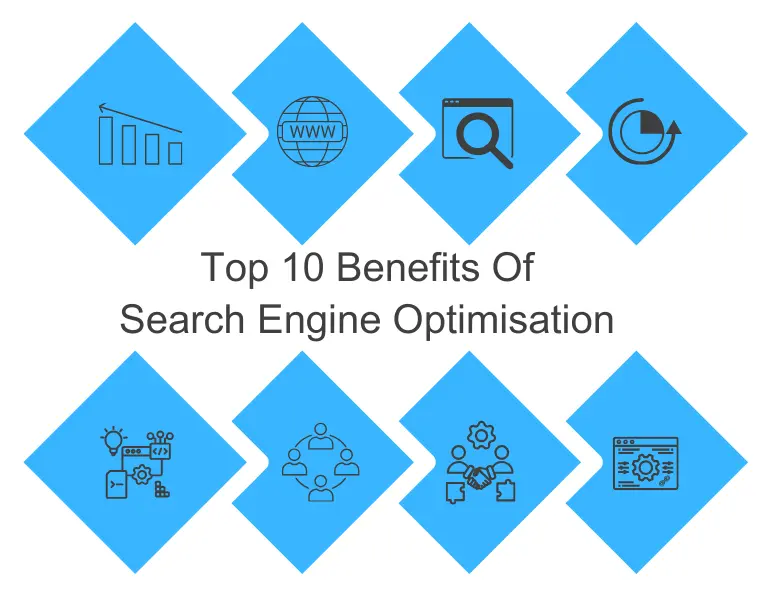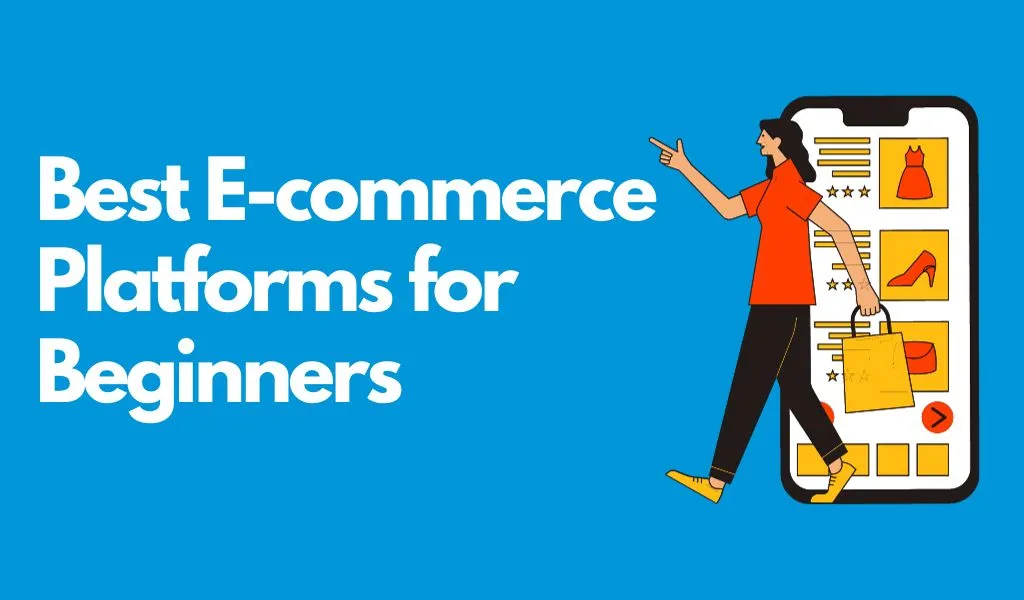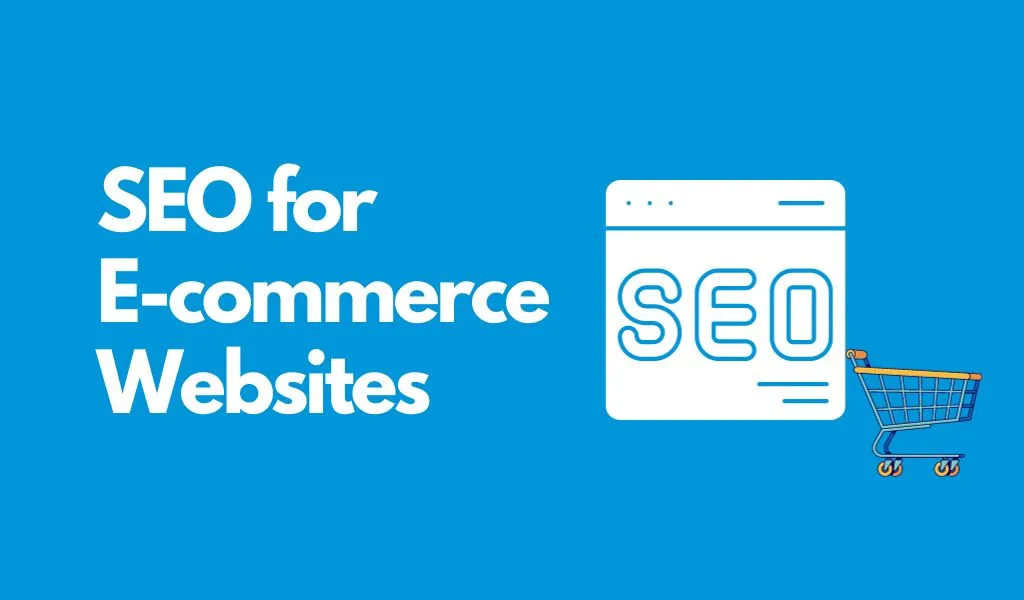Local Search Engine Optimisation (Local SEO) has emerged as a crucial digital marketing strategy for businesses aiming to enhance their online presence and connect with local customers.
In an era where consumers rely heavily on search engines to find nearby products and services, understanding and implementing effective Local SEO techniques can make a significant difference for businesses of all sizes.
Here are some key statistics that highlight the importance of local SEO in 2024:
- A whopping 98% of consumers used the internet to find information about local businesses in 2022.
- 76% of consumers who conduct a local search visit a store within one day.
- 76% of consumers “regularly” read online reviews when browsing for local businesses.
- 30% of searches from mobile devices are related to a specific location.
- 58% of U.S. people used voice search to find information about a nearby company last year.
Definition Of Local SEO
Local SEO refers to the process of optimising a business’s online presence to attract more local customers through online search engines like Google, Bing, and Yahoo. Unlike traditional SEO, which focuses on improving a website’s visibility on a global scale, Local SEO aims to boost a business’s prominence in local search results. This optimisation involves various strategies, including optimising a business’s Google My Business (GMB) profile, local link building, and the strategic use of keywords relevant to the local audience.
Importance Of Local SEO For Businesses
| Benefit |
Description |
Example |
| Increased Online Visibility |
Appear higher in local search results (e.g., Google My Business, local map packs) for relevant keywords. |
Potential customers searching for “best plumber near me” see your business prominently displayed. |
| Drives Targeted Traffic |
Attract customers specifically searching for local businesses like yours. |
Focus on keywords like “flower delivery [city name]” to reach customers needing local flower services. |
| Builds Trust and Credibility |
Being listed in directories and having positive reviews gives legitimacy and builds trust with potential customers. |
A business with many 5-star reviews on Google My Business attracts more customers than one with no reviews. |
| Cost-Effective Marketing |
Local SEO is generally cheaper than traditional advertising or national SEO campaigns. |
Optimize your website and listings once, then reap long-term benefits from organic search results. |
| Boosts Leads and Sales |
Increased visibility and targeted traffic lead to more inquiries and conversions. |
A restaurant appearing in the top local search results sees more phone calls and reservations. |
| Competitive Advantage |
Stand out from local competitors who haven’t implemented local SEO strategies. |
Be the first choice for customers searching for your kind of business in your area. |
| Supports Mobile Users |
Most local searches happen on mobile devices. A strong local SEO presence ensures visibility on mobile searches. |
Optimize your website and listings for mobile users to capture this vital customer segment. |
| Provides Valuable Insights |
Local SEO analytics offer data on how customers find your business, allowing you to refine your strategies. |
Track website traffic, keywords used, and user demographics to understand your local audience better. |
Role Of Keywords In Local SEO
Keywords are the foundation of any SEO strategy, and Local SEO is no exception. In the context of local searches, the choice of keywords becomes even more critical.
Local businesses need to identify and target keywords relevant to their products or services and commonly used by local consumers when conducting online searches.
By strategically incorporating these keywords into various elements of their online presence, such as website content, meta descriptions, and GMB profiles, businesses can significantly improve their chances of appearing in local search results when potential customers are actively looking for what they offer.
Understanding Local SEO
Local SEO involves a multifaceted approach to enhance a business’s visibility in local search results.
Local Pack And Map Pack
Local Pack and Map Pack are prominent features in local search results that businesses aspire to be included in.
The Local Pack typically displays three local businesses relevant to a user’s search query, prominently showcased with key information such as business name, address, phone number, and reviews.
The Map Pack complements this by displaying the location of these businesses on a map, providing users with a visual reference. Securing a spot in these packs significantly boosts a business’s visibility and credibility among local consumers.
Google My Business (GMB) Optimisation
Google My Business is a cornerstone of Local SEO. GMB is essentially an online business profile, providing crucial information like business hours, location, contact details, and customer reviews.
Optimising your GMB profile involves ensuring accurate and up-to-date information, selecting relevant categories, and uploading high-quality images.
A well-optimised GMB profile improves a business’s chances of appearing in local search results and enhances its overall online reputation.
- More businesses are realizing the importance of GMB, claiming their listings and actively managing them. 77% of consumers use Google Maps to find local businesses.
- 84% of customer searches for businesses are discovery searches, meaning they are exploring options, not necessarily looking for a specific brand.
- 94% of calls to local businesses come from GMB on weekdays, emphasizing the importance of mobile-friendly profiles and accurate contact information.
Key Components Of Local SEO
Here are some of the most important components of local SEO.
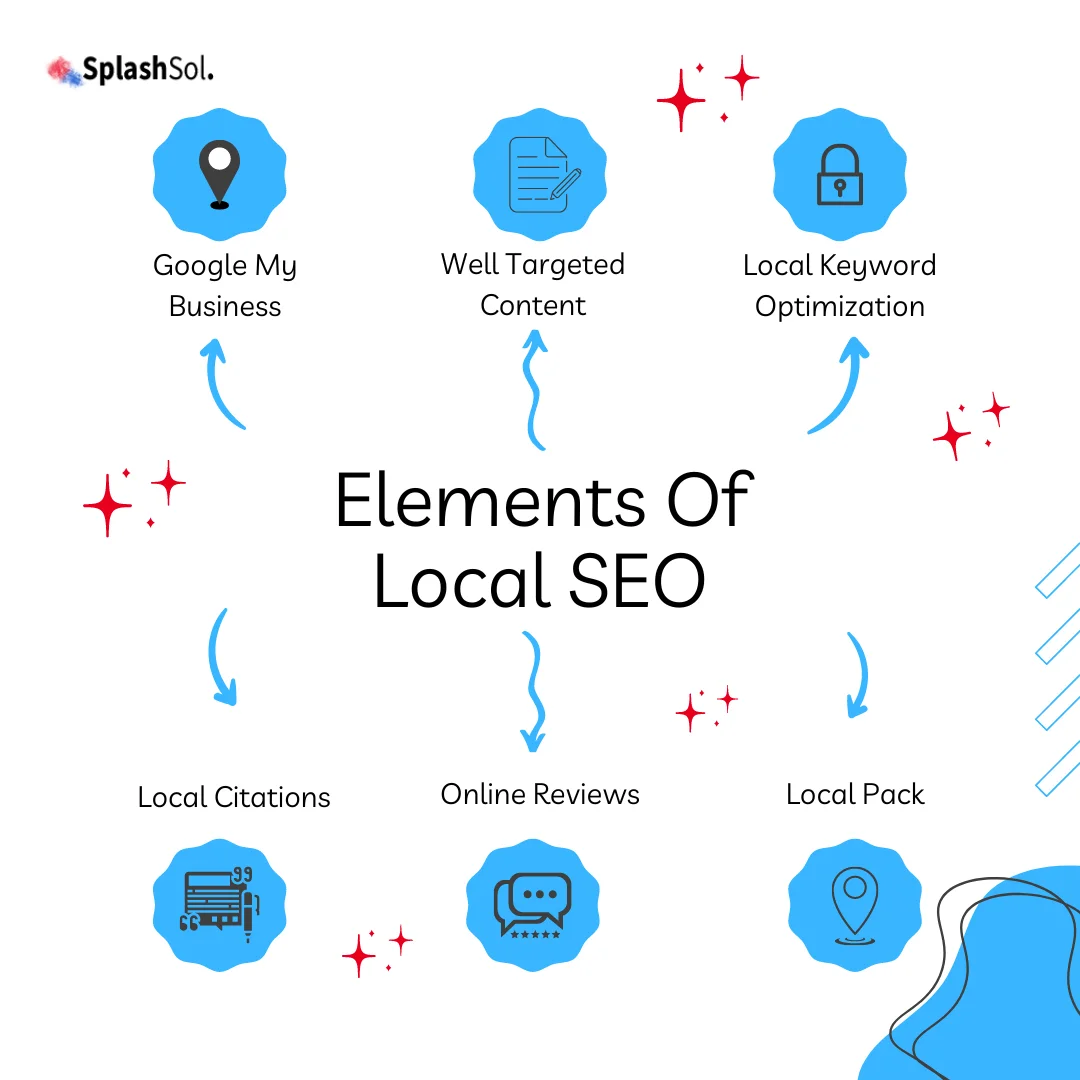
NAP Citations (Name, Address, Phone Number)
NAP citations are online mentions of a business’s name, address, and phone number. Consistent and accurate NAP information across various online platforms, directories, and websites reinforces a business’s legitimacy and trustworthiness in the eyes of search engines.
This consistency is crucial for local search algorithms, helping search engines associate the correct information with a business and improving its chances of appearing in local search results.
Online Reviews
Customer reviews are important local search ranking factors. Positive reviews influence potential customers and signal to search engines that a business is reputable and offers quality products or services.
Encouraging satisfied customers to leave reviews on platforms like Google, Yelp, and other relevant sites can significantly impact a business’s online reputation and visibility.
Local Link Building
Link building is a fundamental aspect of SEO, and building local links is particularly beneficial in Local SEO. Local link building involves acquiring backlinks from local businesses, organisations, and community websites.
These local connections signal to search engines that a business is an integral part of the community, boosting its relevance in local search results.
Definition Of Keywords In SEO
Keywords, in SEO, are specific words or phrases that users enter into search engines when looking for information, products, or services.
These keywords serve as the bridge between what users are searching for and the content that businesses provide on their websites.
Identifying and strategically incorporating relevant keywords into various elements of a website’s content helps search engines understand the site’s relevance to specific queries, ultimately improving its chances of appearing in relevant search results.
Local Keywords Vs. General Keywords
While general keywords have a broad scope and appeal to a global or national audience, local keywords are tailored to a specific geographical location.
For businesses targeting local markets, incorporating location-specific terms into their keyword strategy is crucial.
For example, a general keyword might be “best pizza,” while a local keyword could be “best pizza in [city].”
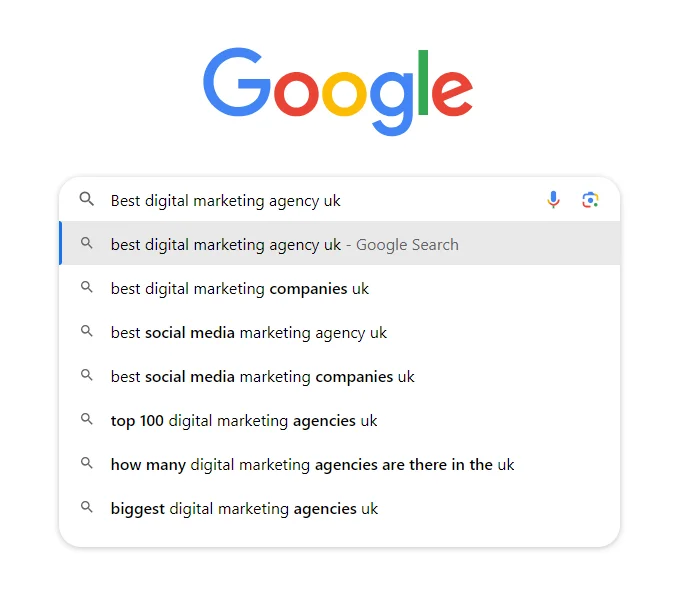
The distinction is vital because local searches often include location qualifiers, and businesses need to align their keyword strategy with the way their local audience searches for products or services.
Targeting Local Keywords For Better Visibility
The decision to target local keywords is rooted in the understanding that local searchers intend to purchase or engage with a local business. By optimising content with relevant local keywords, companies increase their chances of appearing in local search results when users actively look for products or services in their vicinity.
This targeted approach improves visibility and attracts a more qualified and geographically relevant audience.
Businesses can identify effective local keywords through comprehensive keyword research tools, considering search volume, competition, and relevance to their products or services.
Once identified, these keywords can be strategically integrated into various elements of a website, including meta tags, headers, content, and the business’s Google My Business profile.
How To Identify Local Keywords
Identifying the right local keywords is critical in any successful Local SEO strategy.
Google Keyword Planner
Google Keyword Planner is a powerful tool for discovering relevant keywords and understanding their search volumes. Enter general terms related to your business and location to identify local keywords.
The tool will provide insights into the average monthly search volume and competition level, and suggest additional keywords. Focus on terms that balance search volume and competition well, and ensure they align with your business’s offerings and location.
Google Trends
Google Trends offers valuable insights into the popularity of search terms over time. Use the location filter to narrow down results to a specific area for local keyword research.
This tool helps identify seasonality trends, understand emerging topics, and refine your keyword strategy based on local search trends. Pay attention to any upward or downward spikes in interest to stay ahead of evolving local search patterns.
Competitor Analysis
Analysing the keywords your competitors are targeting can provide valuable insights. Identify competitors in your local market and examine their websites, content, and meta tags to understand their keyword strategy.
Tools like SEMrush or Ahrefs can assist in obtaining a detailed view of your competitor’s organic and paid keywords. Look for gaps or opportunities in their strategy that your business can capitalise on, and use this information to refine your own local keyword targeting.
On-Page Optimisation For Local Keywords
Effective on-page optimisation is crucial for ensuring that your website is not only visible in local search results but also compelling and relevant to local users.
Title Tags
Title tags are one of the most influential on-page elements for SEO. Incorporate your primary local keyword naturally into the title tag, while ensuring it accurately represents the page’s content. Consider adding your business location for an extra local SEO boost.
For example, a title tag for a local bakery might be “Best Artisanal Bakery in [City] – [Your Business Name].”
Meta Descriptions
Meta descriptions provide a brief summary of your page in search results. Craft compelling meta descriptions that include your local keywords and encourage clicks. Highlight what makes your business unique and mention the specific locality you serve.
For instance, “Discover the finest pastries and cakes at our [City] bakery. Visit us for a delightful culinary experience!”
Create Location-Specific Landing Pages
Develop landing pages dedicated to specific locations you serve. Tailor the content to address the unique needs and interests of each locality. This enhances your relevance in local searches and provides a personalised experience for users.
For example, if your business operates in multiple neighbourhoods, create pages like “Services in [Neighbourhood]” or “About Us in [City].”
Include Local Keywords Naturally
Infuse your website’s content with local keywords in a natural and user-friendly manner. Avoid keyword stuffing and focus on providing valuable information.
Write blog posts, articles, or product descriptions seamlessly incorporating local terms. This ensures that your content is both search engines optimised and engaging for your audience.
Header Tags Hierarchy
Use header tags (H1, H2, H3, etc.) to structure your content hierarchically. The H1 tag should contain the page’s main heading and include your primary local keyword.
Subsequent header tags can organise content into sections, each potentially featuring variations of your local keywords.
Localised Header Tags
Tailor header tags to reflect the local context. For example, if your business operates in different cities or neighbourhoods, create headers that include local modifiers.
An H2 tag could be “Our Services in [City]” or “Top Attractions in [Neighbourhood].” This not only aids in SEO but also enhances the user experience by guiding visitors through location-specific information.
Off-Page Optimisation For Local Keywords
Off-page optimisation is pivotal in strengthening your website’s authority and relevance within the local context.
Understanding Local Citations
Local citations refer to online mentions of your business’s name, address, and phone number (NAP) on external websites, directories, and platforms.
Consistency and accuracy in local citations are crucial for establishing trust with search engines. Ensure that your business information is uniform across all citations to avoid confusion.
Submit to Local Directories
Identify and submit your business to relevant local directories and citation sources. These can include industry-specific directories, local business chambers, and popular review platforms.
Google My Business is a primary citation source, so ensure your information is complete and accurate there. Platforms like Yelp, Yellow Pages, and local chamber of commerce websites can also enhance your local citation profile.
Local Link-Building Strategies
Some strategies for link-building include:
Establish Relationships With Local Businesses
Forge partnerships with other local businesses and explore opportunities for mutual collaboration.
This could involve co-hosting events, cross-promoting products or services, or simply acknowledging each other online. When local businesses link to each other, it strengthens the local business network and contributes positively to search engine algorithms.
Sponsor Local Events Or Charities
Get involved in local events, sponsor community activities, or support local charities. When your business is associated with such initiatives, it often leads to online mentions and backlinks from event websites or local news sources.
These backlinks boost your off-page SEO and enhance your community engagement.
Google My Business And Keywords
Google My Business (GMB) is a cornerstone of Local SEO, and optimising it strategically can significantly impact your business’s visibility in local search results.
Importance Of GMB For Local SEO
Here is how GMB assists in local SEO.
First Impressions Matter
GMB is often the first user interaction with your business in search results. The information displayed, including your business name, address, phone number, hours of operation, and customer reviews, forms a snapshot of your business.
An optimised and accurate GMB profile establishes trust and encourages potential customers to choose your business over competitors.
Local Pack Placement
GMB is a key determinant for inclusion in the Local Pack, the search results section showcasing local businesses related to a user’s query.
The companies listed here enjoy higher visibility and are more likely to attract clicks. Optimising your GMB profile increases the likelihood of your business appearing in these coveted positions.
Optimising GMB For Targeted Keywords
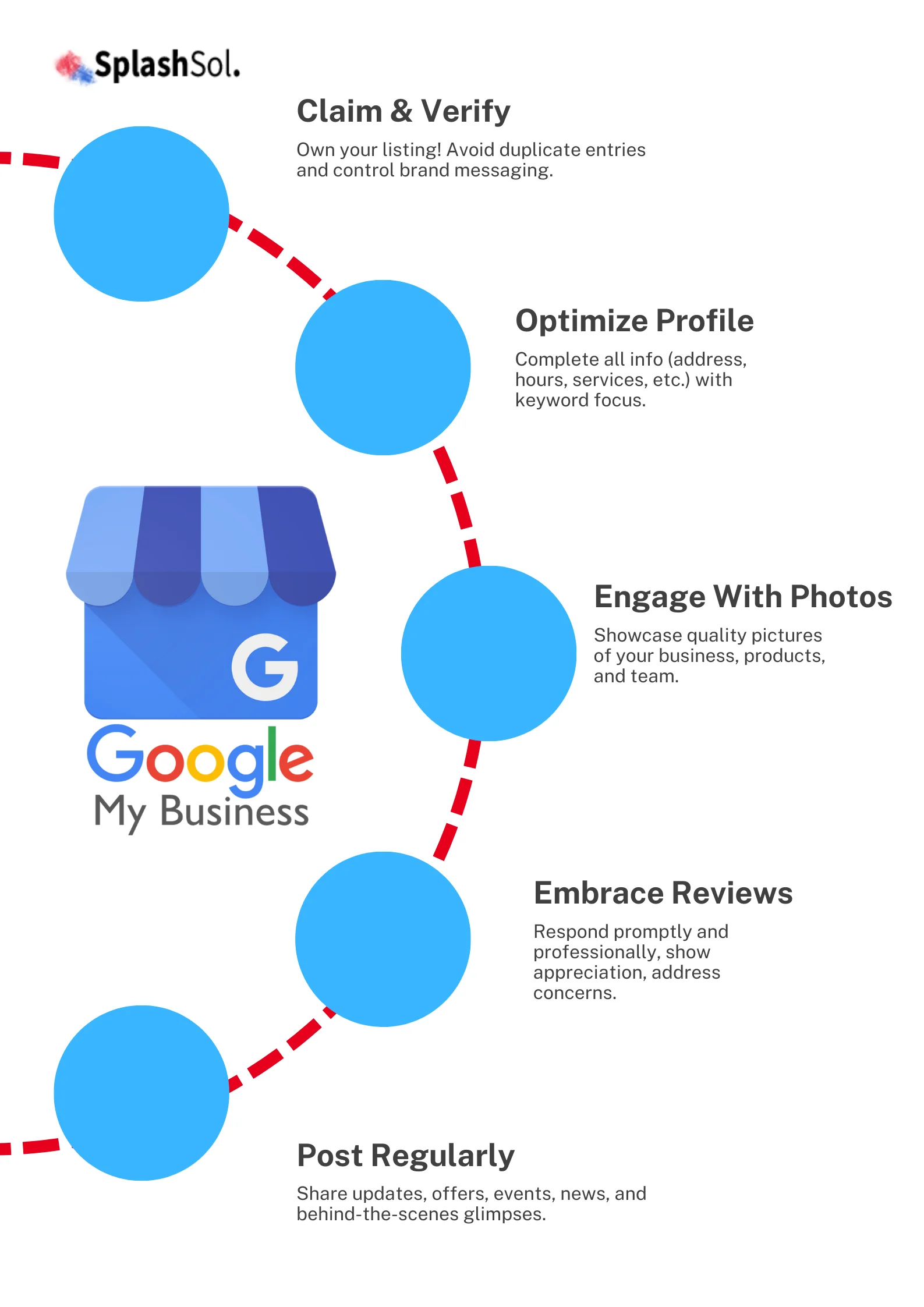
You can optimise GMB for targeted keywords by following the given steps.
Keyword-Rich Business Description
Craft a concise yet informative business description that incorporates your primary local keywords naturally. Clearly communicate your products or services, service area, and any unique selling points.
This not only aids in search engine visibility but also helps potential customers understand what your business offers.
Choose Relevant Categories
Selecting accurate and specific business categories on GMB is crucial for local SEO. Ensure that the primary category aligns with your main products or services, and consider additional types that reflect the breadth of what your business offers. This enhances your visibility for a variety of relevant searches.
Add Location-Specific Attributes
Take advantage of GMB’s features to highlight location-specific attributes. This could include details such as “serving [City]” or “free parking available.” These attributes provide users with valuable information and contribute to your business’s localisation in search results.
Tracking And Analysing Local SEO Performance
Effectively tracking and analysing the performance of your Local SEO efforts is crucial for understanding what works, identifying areas for improvement, and ensuring ongoing success in local search rankings.
Google Analytics For Local SEO
Set Up Local Tracking
In Google Analytics, set up specific tracking for local SEO metrics. Use features such as custom reporting and dashboards to focus on key indicators, including website traffic from local searches, user engagement with location-specific pages, and conversions originating from local searches.
Monitor Local Traffic Sources
Identify the sources of your local website traffic. Evaluate organic search traffic performance, ensuring it aligns with your local keyword targeting.
Additionally, analyse the effectiveness of other channels, such as local referrals, social media, and online directories, in driving local users to your site.
Monitoring GMB Insights
Track Clicks, Calls, And Direction Requests
GMB provides valuable insights into user interactions with your listing. Monitor the number of clicks to your website, calls initiated directly from the GMB profile, and requests for directions to your business.
These metrics offer insights into user engagement and interest in your local offerings.
Analyse Popular Times And Searches
GMB Insights includes data on popular times when users engage with your business and the specific search queries that lead users to your listing. Leverage this information to identify peak engagement periods and adjust your operations or promotional activities accordingly.
Additionally, use search query data to refine your local keyword strategy.
Frequently Asked Questions
How do I use local SEO keywords?
To optimise for local SEO, incorporate location-specific keywords in your website content, meta tags, and headers. Include your business address and contact information consistently across online platforms.
Encourage customer reviews, and list your business on Google My Business. This enhances visibility for local searches, boosting your online presence.
What is a local SEO?
Local SEO (Search Engine Optimisation) is a digital marketing strategy focused on optimising online visibility for local businesses in specific geographic areas.
It involves using location-based keywords, creating consistent business listings, and obtaining positive reviews to improve local search rankings, driving more relevant traffic to the business.
How do I know what SEO keywords to use?
Identify SEO keywords by researching your industry, analysing competitor websites, and using tools like Google Keyword Planner.
Consider relevance to your content, search volume, and competitiveness. Prioritise long-tail keywords for specificity. Regularly review and adjust based on performance data to ensure ongoing optimisation for search engine visibility.
How do you define SEO keywords?
SEO keywords are specific words or phrases strategically chosen to optimise online content for search engines. These words reflect common queries users may enter in search engines.
Properly integrating these keywords into website content helps improve search engine rankings, increasing the visibility and accessibility of a site to relevant audiences.
What is local and global SEO?
Local SEO targets a specific geographic area, optimising online presence for local searches. It involves location-based keywords, business listings, and reviews.
Global SEO aims for a broader reach, targeting a worldwide audience. Both strategies involve optimising content and technical aspects to improve search engine rankings for their respective scopes.
Is local SEO paid?
Local SEO itself is not inherently paid. It involves optimising online presence to improve visibility in local searches. However, businesses may invest in paid advertising, such as Google Ads, to complement local SEO efforts and enhance visibility. Local SEO primarily focuses on organic strategies to improve local search rankings.





